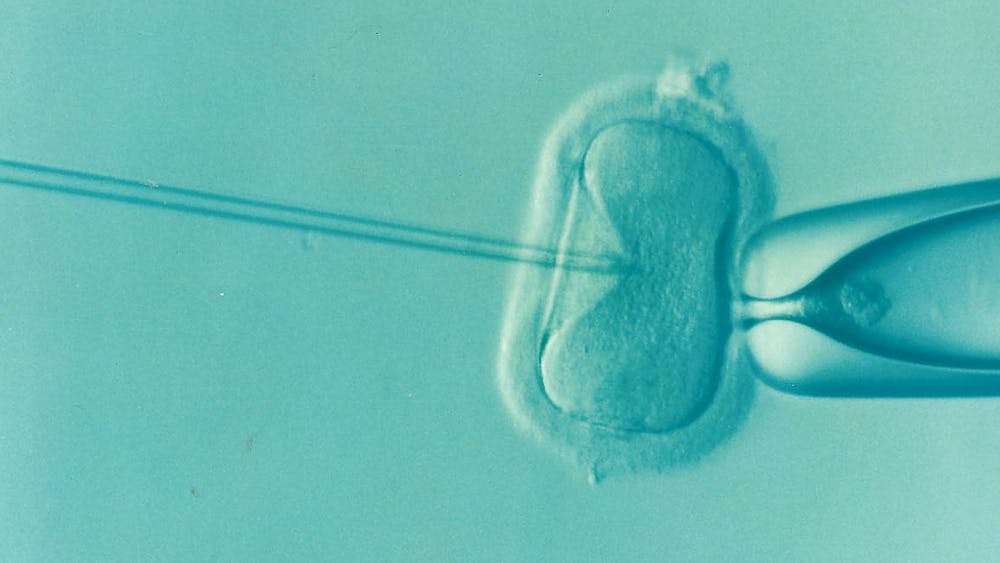By Aliyah Siddiqui
Nation and World Editor
The Alabama Supreme Court recently ruled that frozen embryos stored in test tubes should be considered children. Since the ruling, health systems around the state have paused their in-vitro fertilization treatments, impacting hundreds of families.
The case involved three couples who received IVF treatments at an Alabama fertility clinic. All three had additional embryos that were frozen and stored in the clinic, with the hope of being able to use those embryos in a future pregnancy. However, in December of 2020, a patient entered the clinic’s cryo-presevation, opening the tanks the embryos were stored in and accidentally dropping the tubes.
The couples sued the clinic in multiple lawsuits, including one citing the Wrongful Death of a Minor Act. This Alabama law allows parents to “recover punitive damages for their child’s death,” as indicated in the Court’s ruling. While the trial judge dismissed the case and stated that embryos are not considered children, the couples appealed the decision to the Supreme Court, which stated that the act applied to this case.
In the ruling, the justices stated that the Wrongful Death of a Minor Act never defined “child” and declared that “unborn children are ‘children’ under the Act, without exception based on developmental stage, physical location, or any other ancillary characteristics.”
“Even before birth, all human beings have the image of God, and their lives cannot be destroyed without effacing his glory,” Chief Justice Tom Parker wrote in a concurring opinion, according to the New York Times.
Since the ruling was passed, the University of Alabama at Birmingham health system announced that it was pausing IVF treatments as they deliberate the impacts the ruling would have on their work. While its Division of Reproductive Endocrinology and Infertility is still retrieving eggs from women hoping to get IVF treatments, the eggs would not be combined with sperm. The health system is also pausing its embryo implantation procedures.
“We are saddened that this will impact our patients’ attempt to have a baby through I.V.F.,” a statement from the health system said, “but we must evaluate the potential that our patients and our physicians could be prosecuted criminally or face punitive damages for following the standard of care for I.V.F. treatments.”
According to Joshua Sharfstein, the vice dean for Public Health Practice and Community Engagement at the Johns Hopkins Bloomberg School of Public Health, there are concerns that frozen embryos may be damaged or destroyed before being transferred, making physicians and hospitals concerned about the legal consequences of this ruling.
Sharfstein also discussed concerns about the ruling on the genetic testing embryos undergo before implementation.
“Many couples… seek IVF so that they can have embryos genetically tested prior to implantation, and if this genetic mutation is discovered in an embryo, the embryo is usually discarded,” Sharfstein said. “Does that mean that pre-implantation genetic testing should no longer take place because you can’t discard the embryos?”
In light of these pauses in IVF treatments, both Republican and Democratic lawmakers in Alabama have responded to protect IVF treatment and providers in the state. Republican Sen. Tim Melson proposed a bill in the Senate that would provide “civil and criminal immunity to persons providing goods and services related to in vitro fertilization except acts of omission that are intentional and not arising from or related to IVF services.” According to NPR, Melson is also planning on introducing legislation that would specify that embryos are not viable unless they are implanted.
In the U.S. Congress, Sen. Tammy Duckworth (D-IL) is planning on also pushing a vote on her 2022 bill that would protect access to IVF across the nation and guarantee that patients have authority over how sperm and egg cells are used. She is hoping that the recent court case and voter pressure would make Republicans support the bill, as compared to 2022 when Republicans blocked the bill’s passing.
“Republicans seem to finally be getting the message that they are out of touch with what vast majorities of Americans—even pro-life Americans—want,” Duckworth said, according to Time.
While lawmakers and patients continue to grapple over the consequences of the Alabama ruling, Dr. Paula Amato, the president of the American Society for Reproductive Medicine, argued that there was no scientific basis for the decision and warned about the future of fertility care in Alabama.
“The court held that a fertilized frozen egg in a fertility clinic freezer should be treated as the legal equivalent of an existent child or a fetus gestating in a womb. Science and everyday common sense tell us they are not” Amato said, according to the New York Times. “Modern fertility care will be unavailable to the people of Alabama.”







